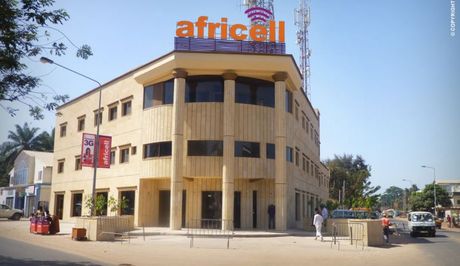NATCOM must distinguish between tariff increases and recharge card (prepaid) price increases
I read with utmost disappointment the Concord Times story ‘For Violating Telecoms Act – Zain, Africell Fined U.S. $50,000 each’
There is need on the part of NATCOM as the telecom sector regulator to differentiate between a tariff or rate increase and prepaid card price increase. Nothing in the story indicates a tariff increase on the part of Zain or Africell and the assertion that the two mobile operators had violated sections 52 and 53 of the Telecommunications Act, 2006 will not withstand a test of legality in any courtroom that understands the plain and simple definition of tariff.
I am of the opinion that these operators (not saints themselves) did not violate any part of the sector laws for the mere fact that they never proposed nor implemented any rate or tariff increase as implied by NATCOM. It is not my intention to subside the regulator’s contributions towards bringing some semblance of sanity to the sector, however, as a patriotic and ‘participative’ citizen; one is compelled to point out the fissure in this position taken by the regulator.
If you can visit the websites of these operators, you should notice that none of the three mobile operators (Africell, Comium and Zain) have changed their respective tariffs (except international call tariffs) in the past 12 months. Indeed, in that same period, we have seen upward changes in the price of the prepaid cards or airtime value for electronic vouchers and the main reason for these increases had squarely been for the sharp decrease in value of the Leones against the US Dollar. In this regard, the government through its policy making organ for the sector (Information Ministry) can direct a change here overnight through requiring all mobile telephony calls to be rated in Leones versus ‘Units’, which in essence is a cover for US cents. This is common practice for these operators in their other footprints across Africa and the government will be in play to direct and implement such policy.
The blame for this recent increase in the price of the prepaid cards must be shared amongst the dealers (prepaid cards), operators, NATCOM and NRA. NRA in conjunction with NATCOM could have easily given a directive for GST to be inclusive in the call tariffs and not the phone cards as presented in the GST Act, 2009. The ‘tariffs’ referred to in sections 52 and 53 of the Telecommunications Act, 2006 are actually call rates being assessed or charged for minutes of usage or any other mode of measurement of service usage employed by the operator. These tariffs are call rates published by an operator for a specific telecommunications service and tariffs will be considered as contractual obligations between the user community and the telecommunications supplier (i.e., GSM operators). NATCOM should examine the way the operators treat the rating and billing of their post-paid users to come to the conclusion that the major culprit in this whole saga is the dealer community (‘downstream’ stakeholders) with their never-ending quest for profit maximization.
I will appeal to NATCOM to reconsider its action against the two operators and embark on meaningful regulation of the nation’s telecom sector. At this point in time, consultative regulation not intrusive regulation is what I believe is actually needed for our communications industry. There are so many other areas of sector regulation NATCOM ought to focus on and it is about time the President of this great country re-examines the entire make-up that Board.
David Conteh, Â Perth, AustraliaÂStay with Sierra Express Media, for your trusted place in news!
© 2010, https:. All rights reserved.






